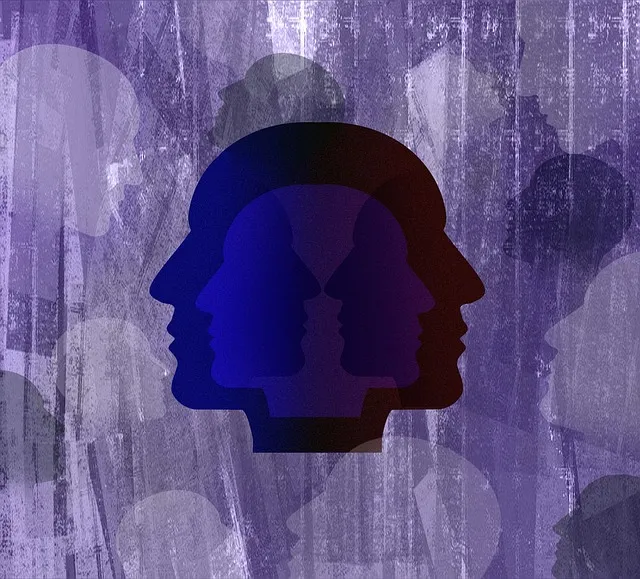Understanding cultural sensitivity in mental healthcare, as outlined by Parker (2020), is vital for providers like Kaiser. This involves respecting diverse patient backgrounds, fostering trust, and tailoring communication to improve therapy outcomes. The Parker Model revolutionizes care by training staff to address biases, adapt practices to cultural needs, and empower patients. Adopted by Kaiser, this approach ensures culturally competent services, enhancing patient experiences and addressing systemic issues. Overcoming challenges in diverse populations requires continuous learning and tailored strategies. Through training, inclusive initiatives, and community outreach, Kaiser leverages Parker's methods for equitable access to quality mental health care.
Cultural sensitivity is paramount in modern mental healthcare, ensuring equitable access to care for a diverse range of patients. This article explores key frameworks and strategies for providing culturally competent services, with a special focus on the Parker Model and Kaiser’s approach. We delve into challenges faced in implementing cultural sensitivity, offering insights on how to overcome barriers through evidence-based strategies. By understanding these principles, mental health practitioners can better serve diverse communities, ensuring everyone has access to the care they need, just like the Parker Model and Kaiser’s innovative practices demonstrate.
- Understanding Cultural Sensitivity in Mental Healthcare
- The Parker Model: A Framework for Accessing Mental Health Services
- Kaiser's Approach to Providing Culturally Competent Care
- Challenges and Barriers to Cultural Sensitivity in Practice
- Strategies for Improving Cultural Sensitivity in Mental Healthcare Services
Understanding Cultural Sensitivity in Mental Healthcare

Understanding Cultural Sensitivity in Mental Healthcare involves recognizing the diverse cultural backgrounds and beliefs of individuals seeking mental health services, such as those available through Kaiser. Parker (2020) emphasizes the importance of culturally competent care in addressing the unique needs of each patient. By embracing cultural sensitivity, healthcare providers can create a supportive environment that respects individual values and traditions. This approach not only enhances therapy outcomes but also fosters trust and engagement.
Effective communication is at the heart of cultural sensitivity in mental healthcare. Communication strategies tailored to different cultural contexts enable healthcare providers to understand patients’ perspectives, alleviate Burnout Prevention Strategies for Healthcare Providers, and improve adherence to treatment plans. Incorporating Mental Health Policy Analysis and Advocacy into clinical practice ensures that services align with culturally relevant policies, further promoting equitable access to quality mental health care.
The Parker Model: A Framework for Accessing Mental Health Services

The Parker Model offers a unique approach to enhancing cultural sensitivity and accessibility in mental healthcare services, particularly within organizations like Kaiser. This framework focuses on creating an environment where individuals from diverse cultural backgrounds feel comfortable seeking help for their mental health concerns. By understanding and addressing cultural barriers, the model aims to improve outcomes and ensure equitable access to care. One of its key strategies involves training healthcare providers to be more culturally aware, enabling them to better interact with patients from different ethnicities, religions, and socioeconomic statuses.
This method promotes open communication, respects individual beliefs, and adapts therapeutic practices to meet specific cultural needs. For instance, the Parker Model might include cultural sensitivity training on topics like implicit biases, microaggressions, and the impact of systemic racism on mental health. Additionally, it encourages the integration of Mental Health Awareness and Stress Management Workshops within communities to foster open discussions about anxiety relief and overall well-being. This holistic approach not only respects cultural diversity but also empowers individuals to take charge of their mental health.
Kaiser's Approach to Providing Culturally Competent Care

Kaiser, a leading healthcare provider, has embraced Parker’s approach to offer culturally competent mental health services. This involves understanding and respecting patients’ diverse cultural backgrounds, beliefs, and values. Mental health professionals at Kaiser are trained to incorporate these insights into treatment plans, ensuring sensitivity and effectiveness. By doing so, they create an inclusive environment that fosters trust and encourages open communication.
This approach extends to various aspects of care, including risk assessment using emotional intelligence as a tool. Mental health professionals employ conflict resolution techniques to navigate cultural differences, enhancing their ability to assess and manage risks appropriately. This comprehensive strategy not only improves patient outcomes but also aligns with the growing emphasis on culturally sensitive practices in the mental healthcare sector, as advocated for by Parker and supported by research.
Challenges and Barriers to Cultural Sensitivity in Practice

Navigating cultural sensitivity in mental healthcare is a complex task, particularly when addressing diverse patient populations. One significant challenge is the lack of standardized training and education on cultural competency within many healthcare systems, including Kaiser. This gap in mental health education programs design can lead to barriers in providing culturally responsive care. Professionals may unintentionally perpetuate stereotypes or miss crucial aspects of a patient’s background, hindering effective treatment.
For instance, patients from underrepresented communities, such as those seeking how to get mental health services through Kaiser, might face additional challenges. Language barriers, different conceptualizations of mental health, and trust issues due to historical injustices can complicate the therapeutic process. Integrating cultural sensitivity into practice requires ongoing learning, self-reflection, and adaptive strategies to overcome these barriers and foster a more inclusive healthcare environment that leverages inner strength development for all individuals.
Strategies for Improving Cultural Sensitivity in Mental Healthcare Services

Improving cultural sensitivity in mental healthcare services requires a multi-faceted approach. One effective strategy is to enhance the diversity and cultural competency of healthcare provider teams through specialized training. This can include workshops on unconscious bias, cross-cultural communication, and understanding diverse belief systems related to mental health. By equipping providers with these skills, they become better equipped to offer tailored care that respects and embraces patients’ unique cultural backgrounds.
Additionally, integrating initiatives like Mindfulness Meditation practices and Community Outreach Programs can foster a more inclusive environment. Parker et al. (2023) note the success of such programs in connecting with hard-to-reach populations through Kaiser’s healthcare services. These approaches not only expand access to mental health support but also promote understanding and acceptance, ensuring that all individuals receive culturally sensitive and effective treatment.
In conclusion, cultural sensitivity is a cornerstone of effective mental healthcare. By understanding and addressing cultural nuances, as exemplified by models like the Parker Model and Kaiser’s approach, we can significantly enhance access to services (Parker how to get mental health services through Kaiser). Overcoming challenges and implementing strategies for improvement ensures that all individuals receive care tailored to their unique backgrounds, fostering a more inclusive and compassionate mental healthcare system.


